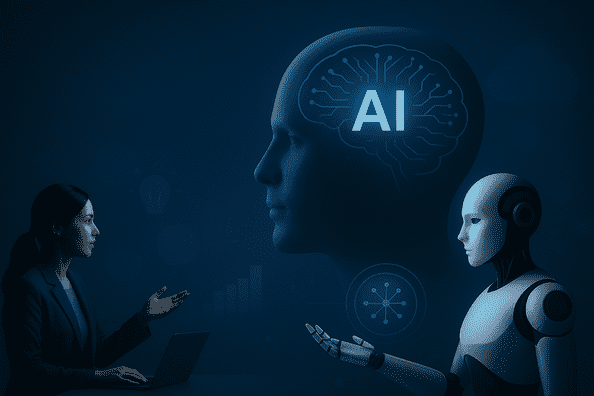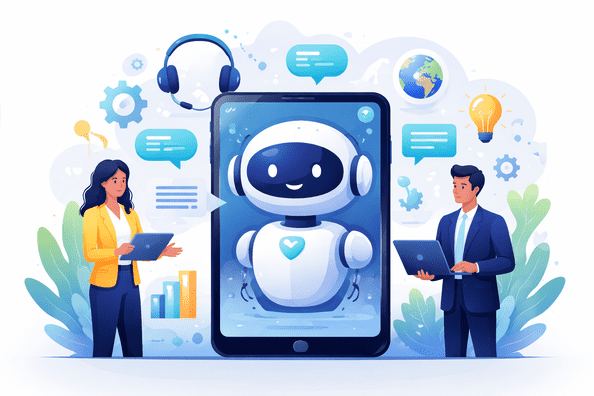The IIT Kanpur AI Summit stands as a beacon of innovation and collaboration in India’s fast-evolving artificial intelligence landscape. Drawing together leading researchers, industry experts, policymakers, and passionate students, the summit fosters cutting-edge breakthroughs and nurtures dialogue on AI’s ethical, social, and economic impacts. This immersive gathering highlights state-of-the-art research, showcases transformative applications, and charts a roadmap for AI’s responsible growth—making the IIT Kanpur AI Summit the must-attend forum for anyone invested in India’s AI future.
Setting the Stage: Why the IIT Kanpur AI Summit Matters
Artificial intelligence is reshaping every facet of our lives—from healthcare diagnostics to smart cities, from personalized education to climate modeling. India, with its vast talent pool and burgeoning startup ecosystem, is uniquely positioned to lead in AI innovation. Yet, realizing this potential requires more than isolated breakthroughs; it demands cross-disciplinary dialogue, shared resources, and a commitment to ethical deployment.
The IIT Kanpur AI Summit addresses these needs by:
- Bridging Academia and Industry: Encouraging the translation of theoretical research into real-world solutions.
- Promoting Ethical AI: Advocating frameworks that ensure transparency, fairness, and accountability.
- Cultivating Talent: Providing mentorship and networking for students and young professionals.
- Shaping Policy: Informing government strategies to balance innovation with societal well-being.
- By uniting key stakeholders under one roof, the summit accelerates progress and sets the tone for India’s AI journey over the coming decade.
Pioneering Research at the Cutting Edge
Deep Learning Advances
One highlight in recent years has been progress in deep learning architectures. At IIT Kanpur’s Center for Artificial Intelligence and Data Science (CAIDAS), researchers have refined transformer models to better handle noisy, low-resource languages—an essential innovation for India’s linguistic diversity. For instance, a multilingual transformer trained on Hindi, Marathi, and Bengali data has shown a 15% accuracy boost in sentiment analysis tasks compared to monolingual baselines. This work promises more inclusive AI applications, from chatbots in regional languages to sentiment monitoring across social platforms.
Reinforcement Learning in Robotics
Another frontier featured prominently at the summit is reinforcement learning for robotics. A team from IIT Kanpur demonstrated an autonomous drone navigation system that learns obstacle avoidance through simulated flight trials. By integrating curriculum learning—gradually increasing task complexity—the drone mastered urban navigation scenarios in half the training time of conventional methods. This research has immediate applications in search-and-rescue missions, precision agriculture, and even drone-based delivery services.
AI for Healthcare
Healthcare remains a crucial domain where AI can save lives and reduce costs. Summit presentations included the development of a convolutional neural network (CNN) that analyzes retinal scans to detect diabetic retinopathy with 94% sensitivity. Collaborating with a local hospital in Lucknow, researchers validated the model on over 10,000 patient scans, demonstrating its potential to augment ophthalmologists in rural clinics. Beyond diagnostics, other teams showcased AI-driven predictive models for tuberculosis spread, combining satellite imagery, demographic data, and real-time case reporting.
Real-World Applications: From Lab to Society
Smart Agriculture: Precision Farming in Punjab
Smallholder farmers in Punjab face unpredictable weather patterns and dwindling soil health. At the AI Summit’s industry track, agritech startups unveiled IoT-powered sensor networks that monitor soil moisture, temperature, and nutrient levels in real time. Coupled with AI-driven irrigation control systems, these solutions optimize water usage—reducing consumption by up to 30% in pilot farms—and increase yield predictability. By integrating regional weather forecasts, the platform suggests optimal planting windows, helping farmers navigate climate volatility.
Urban Mobility: AI-Enabled Traffic Management
Chennai’s notorious traffic congestion served as the testbed for an AI-enabled traffic management pilot. Citywide cameras feed video streams to an edge-computing system that employs object detection to gauge vehicle density and flow. A reinforcement learning agent dynamically adjusts traffic signal timings, reducing average commute time by 12% during peak hours. The project’s success has prompted discussions with municipal bodies in Delhi and Bengaluru to scale the model, illustrating how AI summits can spark citywide transformations.
Education: Personalized Learning Platforms
Recognizing the diversity of learning styles in India’s crowded classrooms, edtech innovators showcased adaptive learning platforms at the summit. Using collaborative filtering and knowledge tracing algorithms, these systems tailor content sequences to each student’s strengths and weaknesses. In a Delhi government school pilot, the platform increased math proficiency by 18% over six months. Teachers receive real-time dashboards highlighting struggle areas, enabling targeted interventions. Such solutions promise to bridge learning gaps in under-resourced schools across the country.
Ethical and Societal Implications
While AI promises vast benefits, it also raises critical ethical questions. The IIT Kanpur AI Summit dedicates entire panels to these topics, reflecting a balanced, thoughtful approach rather than blind techno-optimism.
Bias and Fairness
Machine learning models trained on skewed datasets can inadvertently perpetuate discrimination. At the summit, experts debated methods to detect and mitigate bias, such as counterfactual fairness testing and adversarial de-biasing. One case study examined loan approval algorithms that demonstrated 20% disparate impact against certain socio-economic groups. By auditing features and recalibrating decision thresholds, developers reduced the bias gap without sacrificing overall accuracy—an instructive example of responsible AI in financial services.
Privacy and Data Governance
India’s Personal Data Protection Bill, still under legislative review, was a focal point for discussion. Panelists weighed the need for robust consent frameworks against the imperative for open research data. One promising compromise involves “synthetic data”—artificially generated datasets that preserve statistical properties while protecting individual identities. Summit presenters from IIT Kanpur’s Data Privacy Lab showcased a synthetic healthcare dataset generator that maintained diagnostic correlations within a 5% margin of error, enabling research collaboration without risking patient confidentiality.
Employment Disruption
AI automation inevitably transforms job markets. Roundtable sessions assessed both displacement risks and opportunities for new roles. While certain repetitive tasks—data entry, basic customer support—may decline, demand for AI trainers, explainability analysts, and model auditors is rising. A collaborative initiative between TIET (Thapar Institute of Engineering and Technology) and five industry partners has launched “AI Apprenticeships,” offering paid internships where students co-develop AI tools for manufacturing quality control. Such programs aim to upskill the workforce and ensure equitable access to emerging career paths.
Shaping India’s AI Policy and Ecosystem
The summit’s policy dialogue brings government officials into conversation with academics and entrepreneurs. This synergistic exchange is crucial for creating frameworks that both foster innovation and protect societal interests.
National AI Strategy
India’s National Strategy on Artificial Intelligence, spearheaded by NITI Aayog, envisions AI as an engine for inclusive growth. Summit discussions have influenced priorities such as healthcare, agriculture, education, and smart mobility. By showcasing real-world pilot successes, the IIT Kanpur AI Summit helps translate policy briefs into actionable roadmaps. For example, the Ministry of Electronics and IT has committed ₹50 crore in seed funding for AI projects addressing rural healthcare—an outcome directly linked to summit presentations on diabetic retinopathy screening.
Startup Funding and Incubation
A vibrant startup ecosystem is essential for translating research into market-ready products. IIT Kanpur’s incubation cell, in partnership with the Department of Science & Technology, announced the launch of the “AI Catalyzer Fund.” With an initial corpus of ₹20 crore, the fund targets early-stage AI startups working on social impact applications. During the summit, ten finalists pitched solutions ranging from low-cost seismic sensors for earthquake early warning to AI-powered mental health chatbots—demonstrating both the diversity and social potential of India’s AI innovations.
Voices from the Summit: Personal Insights and Experiences
Hearing directly from participants brings the summit’s atmosphere to life and underscores its human dimension.
Dr. Smita Rao, Lead Researcher, IIT Kanpur:
“The cross-pollination of ideas here is unparalleled. One moment, I’m discussing federated learning with an industry leader; the next, I’m mentoring a first-year student on basic neural network architectures. That spectrum of engagement energizes our entire community.”
Aarav Singh, Founder, Agrify Tech:
“Presenting our precision irrigation system at the summit opened doors to partnerships with two major agri-input companies. The real value isn’t just feedback—it’s forging collaborations that scale impact.”
Meera Patel, M.Tech Candidate:
“Attending workshops on AI ethics reshaped how I approach my thesis. It’s not enough to optimize accuracy; we must ask who benefits, who might be harmed, and how to build accountability into every line of code.”
These voices reveal the summit’s dual focus on cutting-edge research and community-driven mentorship. Whether through formal presentations or informal hallway conversations, participants leave with fresh perspectives and lasting connections.
Looking Ahead: The Future of AI in India
The IIT Kanpur AI Summit is more than an annual event; it’s a catalyst for sustained, inclusive progress. As India enters the next phase of its AI journey, several emerging themes warrant attention:
- Edge AI and Resource Efficiency: Developing models that run on low-power devices to serve remote areas without high-bandwidth connectivity.
- AI for Climate Resilience: Leveraging predictive analytics and remote sensing to monitor crop health, water resources, and disaster risk.
- Neurosymbolic AI: Integrating deep learning with symbolic reasoning to improve explainability and generalization.
- Human-AI Collaboration: Designing interfaces and workflows where AI augments, rather than replaces, human decision-making.
- Regulatory Sandboxes: Creating controlled environments for testing new AI applications under supervised conditions, balancing innovation with consumer protection.
Conclusion
The IIT Kanpur AI Summit exemplifies India’s ambition to lead in artificial intelligence through rigorous research, ethical deliberation, and broad-based collaboration. From advances in deep learning and robotics to applications in agriculture, healthcare, and urban planning, the summit showcases how interdisciplinary efforts translate into tangible societal benefits. Moreover, its focus on ethical frameworks and policy engagement ensures that innovation proceeds responsibly.
As AI continues to reshape economies and societies, forums like the IIT Kanpur AI Summit will be indispensable for charting a course that values human dignity, equity, and shared prosperity. Whether you are a researcher, entrepreneur, policymaker, or enthusiast, participating in this summit offers a front-row seat to India’s AI renaissance.



